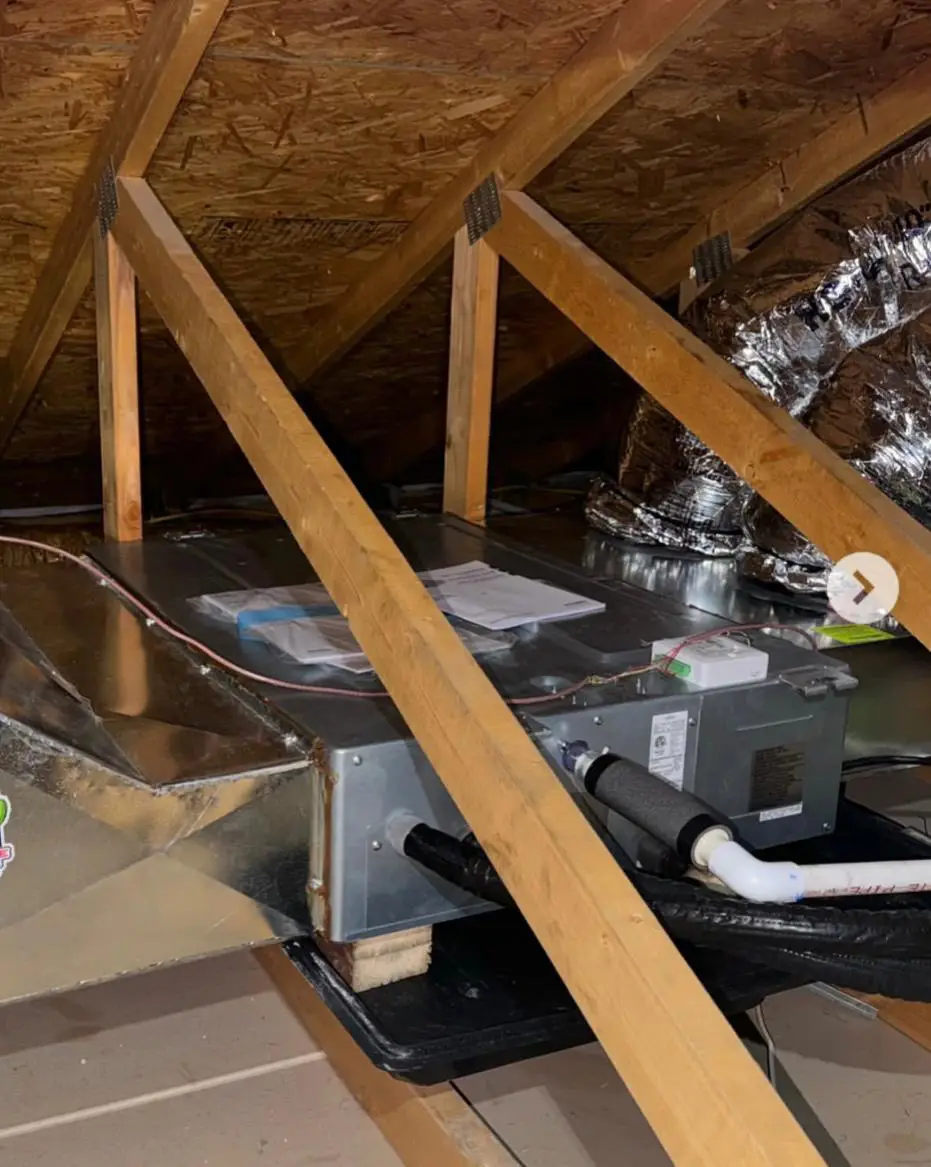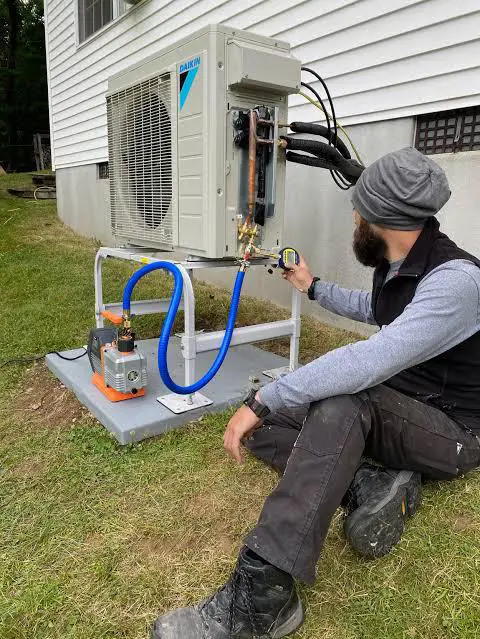A single split heat pump system connects one outdoor unit to one indoor unit, making it a simple, cost-effective way to heat or cool a single room. A multi split heat pump uses one outdoor unit to power several indoor units in different rooms, giving you flexible comfort and independent temperature control throughout your home. Single split systems are ideal for smaller spaces or individual rooms, while multi split systems are perfect for whole homes with limited outdoor space. Both options use energy-efficient heat pump technology for year-round heating and cooling, so you can choose what best fits your needs and budget

Multi – Split Heat Pump
- Home
- Multi – Split Heat Pump
If you’re looking for a smart and flexible way to heat or cool multiple rooms in your home or business, a multi split heat pump system is one of the best solutions available. Unlike traditional single split systems that require one outdoor unit per indoor unit, a multi split system connects two to five (or more) indoor units to a single outdoor unit — saving space, reducing installation complexity, and keeping your exterior walls clutter-free.
Whether you’re building new, renovating, or upgrading your existing heating system, multi split heat pumps offer a perfect balance of efficiency, comfort, and design flexibility.
⸻
🌟 Benefits of Multi Split Heat Pumps
✅ One Outdoor Unit, Multiple Rooms
Connect multiple indoor units to a single outdoor unit. Perfect for multi-bedroom homes, apartments, or small offices. No need to install multiple external units — keeping your outdoor space tidy and unobtrusive.
✅ Independent Climate Control
Each indoor unit operates independently. That means you can set different temperatures for each room, turn some off while others run, and personalise comfort based on how and when each space is used.
✅ Energy Efficiency at Its Best
Multi split systems use advanced inverter technology to automatically adjust power output depending on usage. Only the rooms you use are heated or cooled — helping you reduce energy consumption and save on power bills.
✅ Quiet and Comfortable
Both indoor and outdoor units operate with low noise levels. This makes them ideal for bedrooms, nurseries, studies, and workspaces where peace and quiet are important.
✅ Sleek & Flexible Indoor Options

We Install Industry-Leading Brands to Deliver Quality That Lasts






Our Happy Customers
Hear from our valued customers who trust Auckland Air Solutions for their heating, cooling, and ventilation needs—real stories of comfort, quality, and satisfaction from homes and businesses across Auckland.

Would definitely recommend them to anyone needing HVAC services in Auckland. Reliable, honest, and a pleasure to deal with!
Overall, a very good experience — highly recommended!
my family and friends.
 Michael S.June 10, 2025
Michael S.June 10, 2025Reliable, responsive, and really know their stuff! Auckland Air Solutions handled our air conditioning upgrade and maintenance like pros. They consistently ensure the job is flawless. Couldn’t be happier.
 Robert L.June 10, 2025
Robert L.June 10, 2025Team Auckland Air Solutions installed our ducted system flawlessly. Their knowledge, professionalism, and follow-up service were outstanding. We’ve noticed a real difference in comfort—absolutely recommend them for any HVAC job!
 Alex P.June 10, 2025
Alex P.June 10, 2025The talented team at Auckland Air Solutions repaired our heat pump quickly and efficiently. Friendly service, honest pricing, and expert advice—exactly what you want from a trusted local HVAC specialist.
 Tim W.June 10, 2025
Tim W.June 10, 2025We had a room heat pump installed by Auckland Air Solutions. Every step, from quote to finish, was easy. Great service, top-tier Mitsubishi Electric system—perfect for our small commercial space!
Frequently Asked Questions

Yes — but only if your ducted heat pump has a zoning system. A standard ducted heat pump delivers the same temperature throughout all connected rooms. To set different temperatures in different areas, you need a zoned ducted system with motorised dampers and individual controls. Zoning lets you divide your home into separate areas (like bedrooms, living spaces, or offices) and control each one independently, giving you more comfort and better energy efficiency.
A zone control system is an add-on for ducted heat pumps that lets you divide your home into separate “zones” (like bedrooms, living areas, or offices) and control the temperature in each one independently. It works by using motorised dampers inside the ductwork to open or close airflow to different areas. Each zone has its own thermostat or controller, so you can heat or cool only the rooms you’re using, set different temperatures in different spaces, and save energy by not conditioning empty areas. Zone control makes a ducted heat pump more flexible and efficient, giving you personalised comfort throughout your home.
A ventilation system brings fresh air into your home and removes stale, moist, or polluted indoor air. Modern homes are well-insulated and tightly sealed to save energy, but this can trap moisture, odours, and indoor pollutants like dust, allergens, and chemicals. Without proper ventilation, this can lead to stuffy air, mould growth, and poor air quality that affects your comfort and health. A good ventilation system helps control humidity, reduces condensation, protects your home from mould and dampness, and keeps your indoor air fresh and healthy all year round.
Yes! Heat pumps are one of the most energy-efficient ways to keep your home warm in winter and cool in summer. Instead of using lots of electricity to create heat, a heat pump simply moves heat from one place to another — which means you can get three to four times more heating or cooling for the same amount of power. Many households save up to 50–70% on heating costs compared to old electric or gas heaters. Plus, heat pumps also help remove excess moisture from the air, so your home stays drier, fresher, and less prone to mould or dampness. It’s a smart, healthy choice that can save you money and make your home more comfortable all year round.
To keep your heat pump running efficiently and extend its life, it’s best to have it serviced at least once a year. With regular maintenance, a good-quality heat pump can last 10–15 years or even longer, saving you money and keeping your home comfortable for years to come.
The right heat pump size depends on factors like your home’s size, insulation, layout, and local climate. Getting the correct size is important to ensure maximum comfort and energy efficiency. To make this easy, we offer a free in-home assessment where our experienced team will evaluate your space and recommend the best heat pump solution for your needs.


